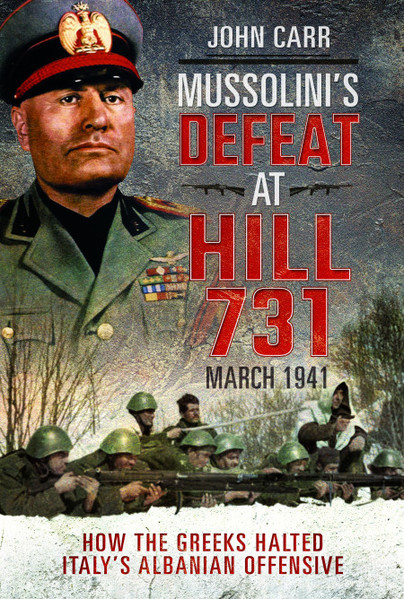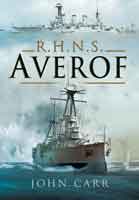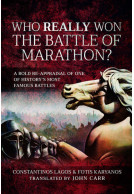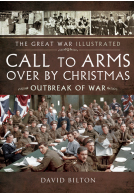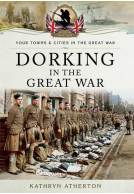Mussolini's Defeat at Hill 731, March 1941 (Hardback)
How the Greeks Halted Italy's Albanian Offensive
Imprint: Pen & Sword Military
Pages: 219
Illustrations: 20 black and white illustrations
ISBN: 9781526765031
Published: 15th October 2020
(click here for international delivery rates)
Need a currency converter? Check XE.com for live rates
| Other formats available - Buy the Hardback and get the eBook for £1.99! | Price |
|---|---|
| Mussolini's Defeat at Hill 731,… eBook (16.6 MB) Add to Basket | £6.99 |
Hill 731 was the scene of the most ferocious battle of the Greek-Italian War in Albania. Watched by Mussolini himself, on 9 March 1941 the Italians launched their Spring Offensive, designed to stem four months of humiliating reverses. The objective was a pair of parallel valleys dominated by the Greek-held Hill 731 that had to be taken at all costs.
The Italian Eighth Corps, part of Geloso's 11th Army, had the task of seizing the heights, spearheaded by 38 (Puglie) Division. Holding the position was the Greek 1 Division of II Corps, with 4 and 6 Division on the flanks.
For 17 days, after a massive artillery barrage (which reduced the hill’s height by 6 metres), the Italians threw themselves with great courage against the Evzones on the hill, to be repeatdly smashed with appalling losses. It was an Iwo Jima-type merciless fight at close quarters, where bayonets held the place of honour but the battered Greeks held.
Mussolini had wanted a spring victory to impress the Fuehrer. Instead, the bloody debacle of Hill 731 could well have contributed to Hitler’s decision to postpone his invasion of Russia by at least four weeks, a costly delay.
This is a well written tale of a doomed Italian offensive in the Greco-Italian war. It has enough detail to satisfy most without the dryness such detail can often suggest.
Beating Tsundoku
Read the full review here
Excellent research and presentation of one of the most important, but least researched, parts of WWII – Very Highly Recommended
Firetrench
Read the full review here
"...a beautifully written account of the bravery and sacrifice of the Greek army as well as that of the Italians set against it."
WWII History
This is a fascinating book, especially for those of us not specialized in the Balkan part of World War 2. John Carr really has delivered a great story here, professionally researched, and written in a very grasping way.
WW2 Traces
Although the title of the book refers to a specific part of the Italo-Greek war in early 1941, the book covers a lot more ground than that single battle.
Read the full review here
This book works on so many levels it can be read as a great war story or it can be seen as an important spotlight on part of what is an often overlooked front in WW2.
Clash of Steel
We highly recommend it.
Read the full review here
I love a book where I know little about the event or what happens, I know I’m in line for a good book hopefully where I’m going to learn a lot. The book is very well written book from both sides of the battle, not just the one sided version, the book is very good indeed and it helps that it relies upon first hand testimonies. I like that the book is purely about this battle and the effect it would have in this case on the future tactics of the axis member countries. In many books your always reading about conjoining events that filter in to take you away from the main story but this book doesn’t. The conditions and suffering by those that endured the bombardment must have been so bloody and devastating. All quite portrayed and detailed in the books. The detail in this book is fascinating and really does make a great book to read for anyone interested in this particular part of the war. I would give this book a full recommendation and a great read indeed.
UK Historian
5 stars
Read the full review here
What can I say more, a book that has the balance of the narrative as its strength, stretched between the two forces, the Greek and the Italian, who fought for a hill of very little importance in the strategic perspective of war in general but which assumed great symbolic significance. That place for the Italians is "Zona Sacra" (Sacred Zone) and even the Greeks, after years of confrontation with the various Albanian governments, finally see the opportunity to celebrate and honour their dead. A campaign that was terrible and that led to nothing, both for one and for the other side but that makes one appreciate even more the resilience and courage that animated both armies that fought for Hill 731 . A book which I hope will be translated into Italian and which undoubtedly enters by right among the best written about the Greek campaign.
On The Old Barbed Wire
Read the full Italian review here
About John Carr
John Carr has enjoyed a career as a journalist, correspondent and broadcaster (The Times, Wall Street Journal Europe, Vatican Radio), mainly in the Mediterranean and particularly Greece, where he now resides. He is the author of On Spartan Wings: The Royal Hellenic Air Force in World War II; Sparta’s Kings; The Defence and Fall of Greece 1940-41; RHNS Averof; Fighting Emperors of Byzantium; The Knights Hospitaller; The Komnene Dynasty; and Mussolini’s Defeat at Hill 731; he is also the co-author of Philip, Prince of Greece (with Constantinos Lagos) and the translator of Who Really Won the Battle of Marathon? by Fotis Karyanos and Constantinos Lagos, all published by Pen & Sword.







